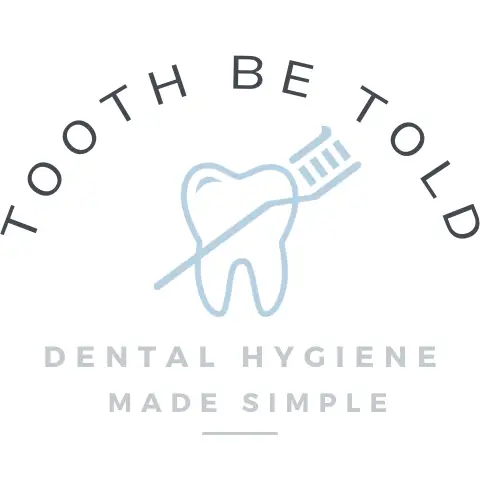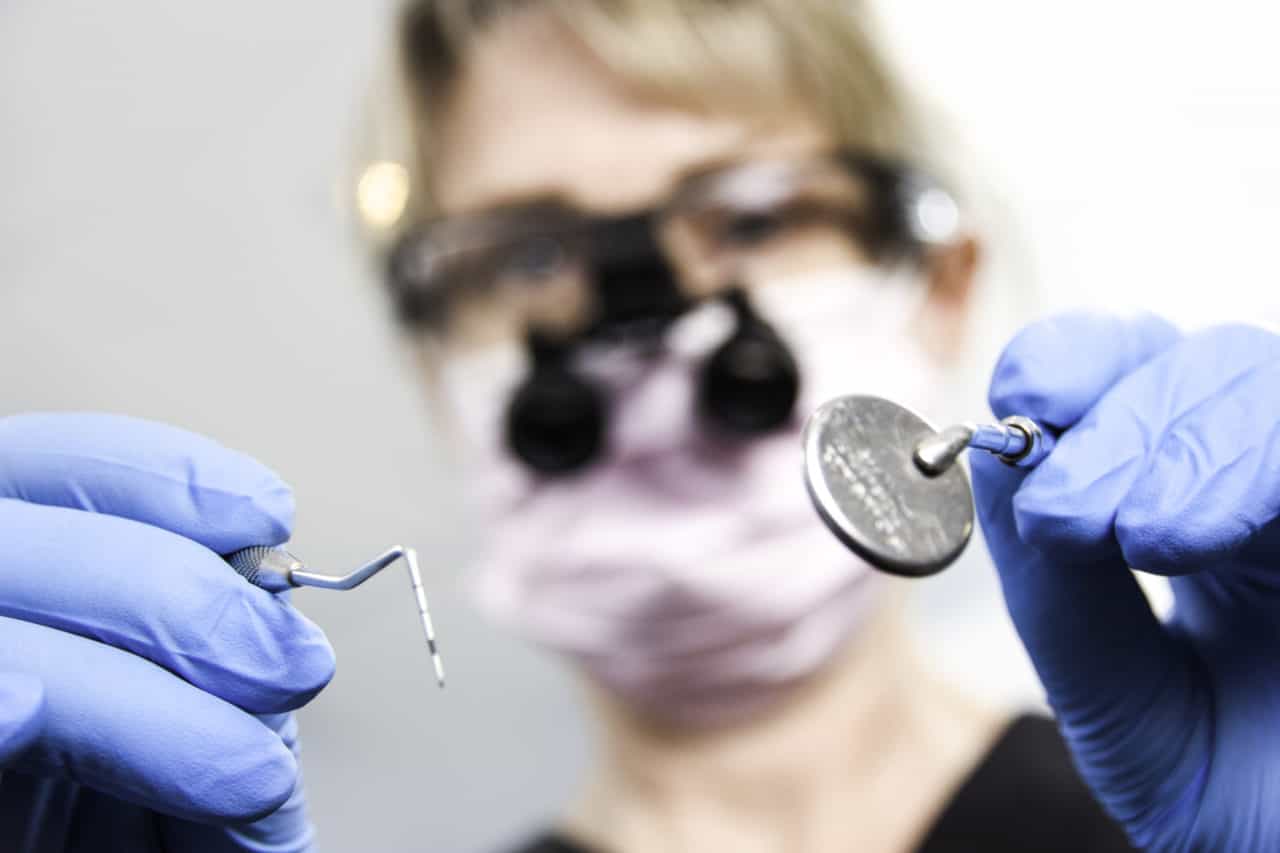
As a dental hygienist, I often see patients who breathe through their mouths instead of their nose, and I discuss it with parents to monitor their child early on, so early intervention can be taken to correct it. But how does mouth breathing affect oral health?
Mouth breathing reduces saliva buffering capacity and flow, causing decreased bacteria neutralization and increased risk of gingivitis, periodontal disease, tooth decay and calculus formation. Dry mouth, bad breath, loose facial muscles, tonsil stones, sore throat and malocclusion can also occur.
In this post, I expand on how mouth breathing affects oral health, the lips and facial structure, and how to fix the effects of mouth breathing.
How mouth breathing increases oral health issues
The biggest threat to our mouths is the bacteria that is inside them. Not all bacteria are harmful; some are necessary to help break down our food and create healthy flora.
There are about 6 billion bacteria in our mouths!
If we allow the bacteria to thrive, more pathogenic bacteria will congregate and cause inflammation which can contribute to gum disease and tooth decay. They will make their way into our bloodstream and travel throughout our bodies.
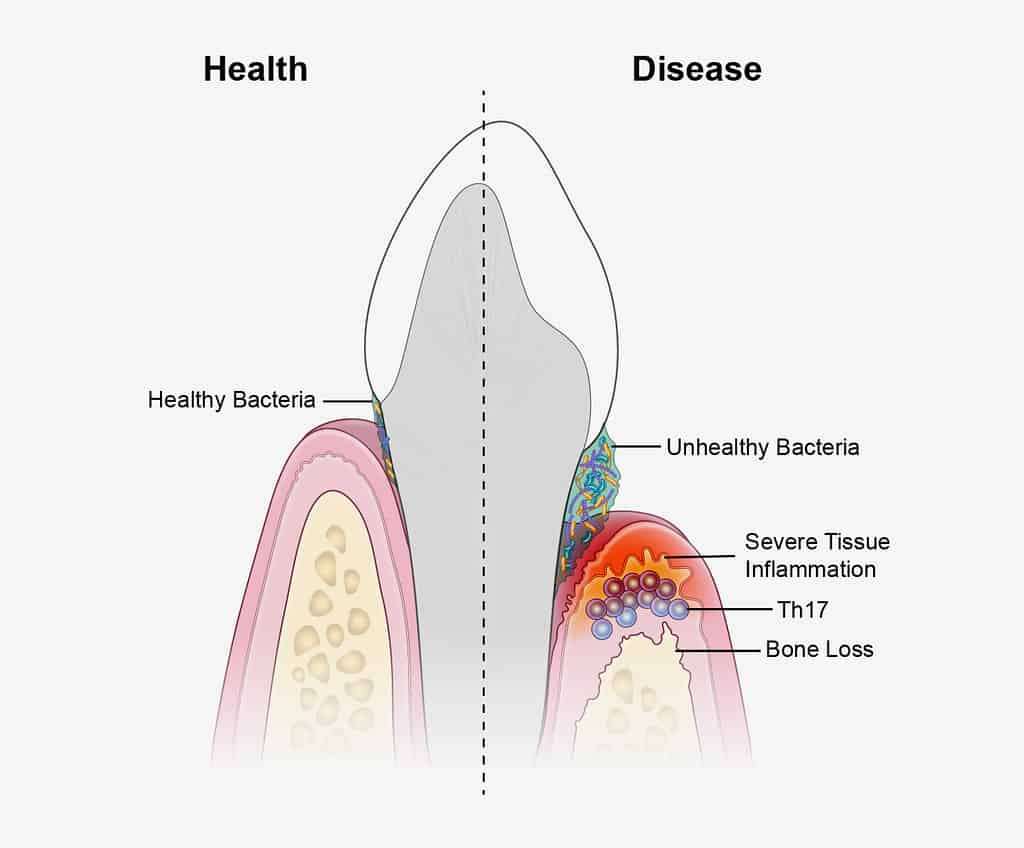
Because mouth breathing causes dehydration of the tissues, especially in the front of the mouth, it leaves out mouths more susceptible to;
- oral diseases; gum disease, gingivitis, periodontal disease
- tooth decay
- malocclusion- open bite and protruding front teeth as well as a gummy smile
- bad breath
- reduced saliva
- sore throat
- tonsil stones
Read Now: Can Tonsil Stones Give You Bad Breath? Causes and What to Do!
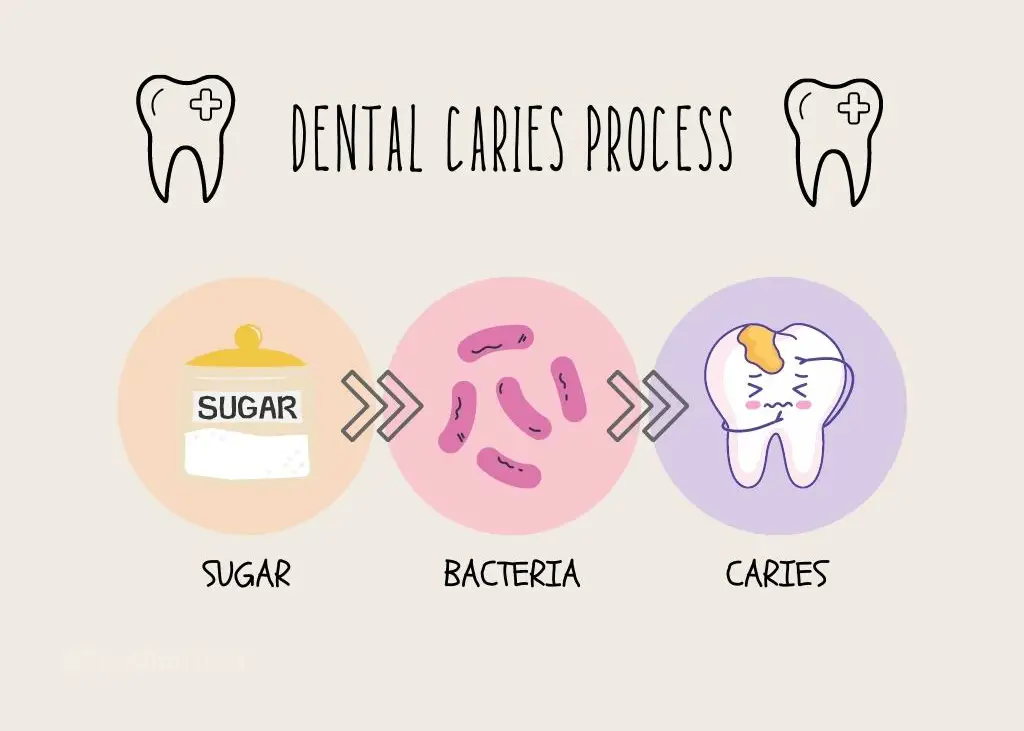
Cleft palate and lip can cause mouth breathing
Sometimes how we develop in utero can affect the growth or formation of oral structures. Developmental abnormalities such as a cleft palate and lip can increase mouth breathing.
Individuals with cleft palate lip often experience mouth breathing because the lips cannot stay closed for prolonged periods.
Even if surgery is done to rectify the cleft palate/lip, the muscle function may be poor enough to cause mouth breathing.
It is essential to try and breathe through your nose as much as possible. Speak to your dental professional, and ensure regular dental hygiene and dentist appointments to maintain oral health.
Read Now: How Dental Hygienists Clean Teeth! What You Need to Know!
Loose and cracked lips; How mouth breathing affects lips
Mouth breathing can cause the lips to become stretched out and lose shape due to the surrounding muscles becoming fatigued and losing elasticity from keeping the mouth open consistently for long periods. Dry air entering the mouth can cause the lips to crack and become chapped.
If your lips are becoming dry and chapped, use a moisturizing lip product, preferably one with sunscreen, if you are going outside in the daytime. Sunscreen for the lips is not encouraged enough, in my opinion!
As I mentioned, mouth breathing can cause the muscles around the lips to become loose and tired. The orbicularis oris is the muscle that surrounds the lips but has many attachments to other tissues in the face.
When the orbicularis oris muscle is affected, it can start to affect the other muscles in the face and even change the shape of your face!
Also, mouth breathing from a young age can affect facial development as the child grows. Because the face shape is altered, it can affect how our teeth bite together and change our appearance.
How does mouth breathing affect your face?
The entire body is complex and interconnected! Mouth breathing effects are not limited to the oral cavity but the whole head, neck, and even the rest of the body. But how does mouth breathing affect the face?
Mouth breathing can cause the facial muscles to become underdeveloped, asymmetrical, and flaccid, leading to an elongated and narrow face with a recessed lower jaw and chin. It can also lead to TMJ issues, which can cause headaches, chewing difficulties, lockjaw and stiffness.
If you think you mouth breathe or have been told you do, there are a few minor things you can do to improve issues from breathing through the mouth.
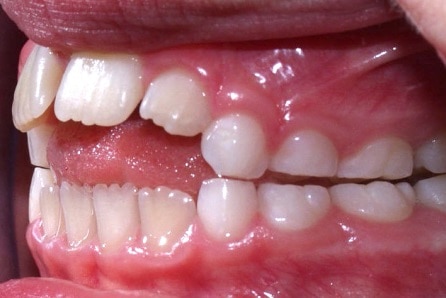
Can you fix the effects of mouth breathing?
Fixing all the effects of mouth breathing may not be possible, especially if facial development has been affected drastically. But the underlying cause of mouth breathing should always be targeted first.
Orofacial myofunctional therapy, orthodontics, dental hygiene therapies, and good oral hygiene can fix or improve the effects of mouth breathing. The consistent effort to change mouth function and reduce habits such as tongue thrusting and thumb sucking will lessen the impact of mouth breathing.
Fixing the effects of mouth breathing involves many different professionals, but most importantly, the efforts of the person who is mouth breathing. The person needs to take the initiative and want to work towards improving the underlying cause. Treating mouth breathing is genuinely a multi-disciplinary process.
Below I expand on the different ways to fix the effects of mouth breathing.
Orofacial Myofunctional Therapy
Not only is it the way our mouths and the supporting structures function, but over time, our brain and muscles create a “memory” of how things work and will want to revert when changes are made.
During therapy, how to eat, swallow, breathe and even speak are addressed. Working with a therapist to change how we function can make the patient more conscious of how they are doing these functions.
To learn more about these therapies, the Academy of Orofacial Myofunctional Therapy has a great web page linked here .
.
Orthodontics
A healthy relationship between the teeth and opposing arches can be achieved through orthodontics. Malocclusion can have detrimental effects on the teeth, affect longevity, create eating imbalances, and cause speech and breathing issues.
Read Now: Cosmetic or Medical? Reasons Why Dental Braces Are Needed
Keeping the mouth moist
The most significant impact on oral health is dry mouth, which is a huge factor in developing tooth decay and cavities.
Using a humidifier and nasal irrigation can help improve moisture content in the mouth.
Even drinking water or using mouth lubricants can be a great way to improve oral health.
I created a dry mouth resource page to get the best dental hygienist-recommended safe products. The link below will take you to that page!
Reduce habits
You can consciously try to breathe through your nose and keep your lips resting together, but sometimes this is not possible due to the anatomy of the mouth and surrounding structures.
People can also form the habit of thrusting their tongues into the backs of the front teeth, which can cause the teeth to flare outward over time.
Like thumb sucking, it can change the palate’s shape, causing it to become high and narrow, pushing the front teeth forward, causing them to flare outward and preventing the lips from touching.
I have seen the trend of mouth taping online to reduce mouth breathing, and I can’t stress enough that before you do this, please speak to your doctor and dental professional.

Good oral hygiene
Good oral hygiene routines will help prevent gum disease and reduce harmful bacteria in the mouth. Brushing twice daily and flossing once daily are essential to maintain oral and overall body health.
Read Now: What Happens if You Never Floss? Dental Hygienist Explains!
Wearing a nightguard can also help reduce teeth’ wear and tear and prevent permanent damage. Most people who have an unhealthy bite will clench and grind their teeth as the body tries to align them to be comfortable.
I hope you find the information I have included in this post helpful!
Have a great day,
Holly 🙂
